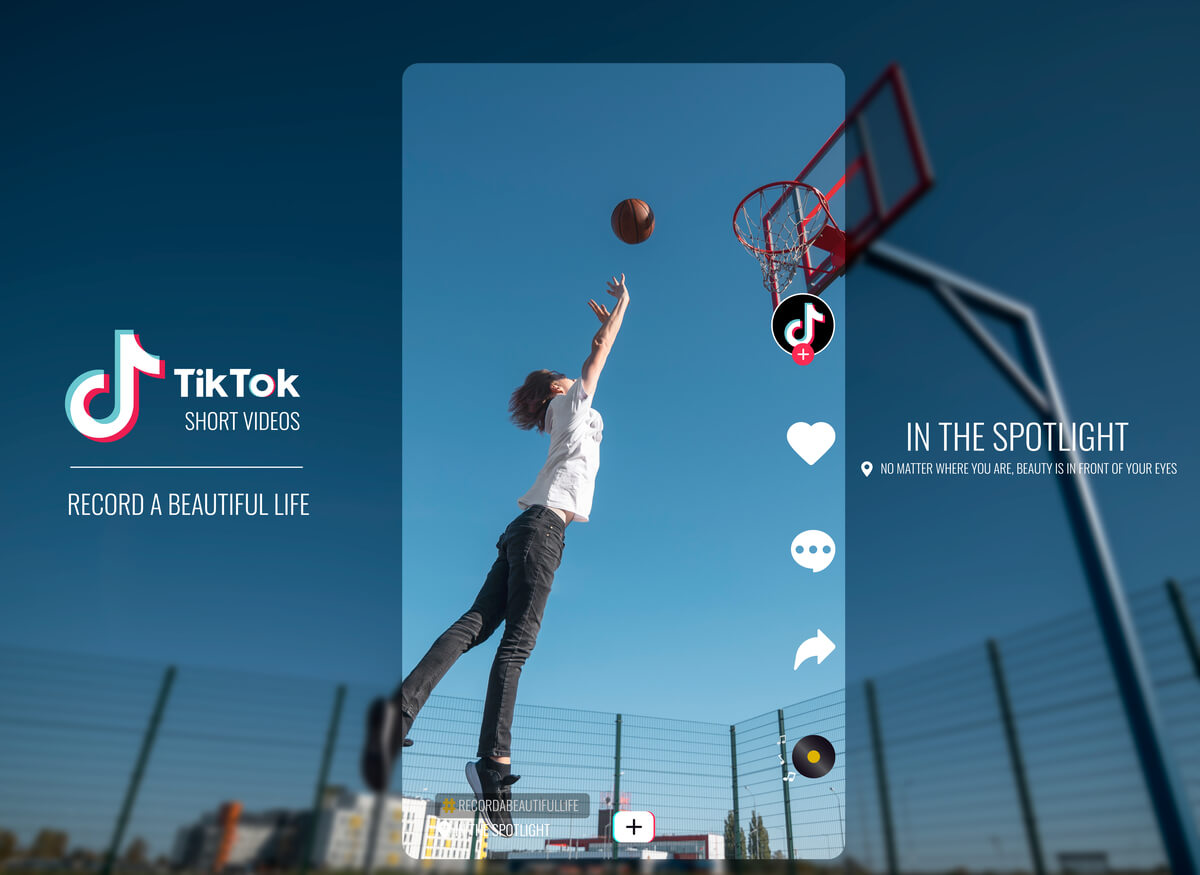Sports marketing differs from traditional marketing by focusing on the unique characteristics of the sports industry. Sports marketing strategies involve aligning brands with the emotional and passionate nature of sports, using athlete endorsements and fan engagement, and creating memorable experiences through events and sponsorships.
The dynamic and competitive nature of sports demands more experiential and emotionally-driven approaches compared to other marketing methods. Effective marketing strategies in the sports industry often include social media marketing, partnerships with influencers and athletes, creating engaging content, hosting events, and collaborating with sponsors to boost brand visibility.
Below we cover the most effective strategies for the sports industry from event marketing to fan experiences – everything that brands have successfully utilized till 2024.
What are the most common sports marketing strategies?
Some strategies tap into the unique aspects of the sports industry and answer the emotional and passionate needs of sports fans. Below we discuss some of the most common sports marketing strategies in the modern era.
Social Media for Sports Marketing
Sports fans are highly active on social media which provides an opportunity for brands to directly engage with them in real-time. It helps create a sense of community, enables instant communication, and allows marketers to use the viral nature of sports-related content.
Sports marketing managers often use platforms like Instagram, Twitter, and Facebook to connect with fans, share content, and build a community around your brand. They regularly post and share visual narratives (videos, gifs, memes, images), leverage trending hashtags, collaborate with social media influencers, and run interactive campaigns such as polls or giveaways to enhance fan interaction.
Social media engagement solutions for sports marketing strategies:
- Live Q&A sessions with athletes
- Interactive polls and challenges
- Virtual watch parties
- Behind-the-scenes content
- Fan-generated content contests
- Countdowns and teasers
Athlete Endorsements


Athletes are central figures and their endorsements can create a strong emotional connection between fans and brands. Athletes bring authenticity, trust, and a personal touch to sports marketing efforts, using their influence to enhance brand credibility. Brands that offer athlete endorsements look more authentic and exclusive to fans.
Marketers spend a lot of time deciding which sports figure to partner with as it can have a significant role in audience engagement. It is important to choose an athlete whose values align with your brand, create authentic content with them, and use their social media presence for mutual promotion. Keep in mind that your audiences must be overlapping otherwise the collaboration can be detrimental to both.
Here are some ideas for athlete endorsement sports marketing strategies:
- Have your athletes take over your brand’s social media for a day (sharing behind-the-scenes moments, training routines, fan interactions, etc)
- Offer fans a chance to receive personalized shoutouts from athletes
- Collaborate with sports figures to design limited-edition merchandise
- Shoot fitness or training challenges endorsed by athletes (encourage fans to participate and share their progress on social media)
- Host virtual autograph sessions where fans can receive digital autographs through live streaming
Event Sponsorships for Marketing Strategies
Sports events attract massive viewership which is a huge opportunity for brands to receive exposure to a diverse and engaged audience. By associating with popular events, brands can improve visibility and align with the excitement of the sports world. Event sponsorships naturally create positive brand associations which is one of the core elements of sports marketing strategies.
Companies will often associate their brands with certain sports events, teams, or leagues to increase their visibility. They choose events relevant to their target audience, activate their sponsorship with engaging on-site experiences, and use branding opportunities like logo placement. The most crucial aspect of event sponsorship is to find common values between your audience and the event attendees.
If you have an opportunity always go for media coverage before the sponsored event takes place. Here is our guide on how to write a press release for an event which you can use for your next event marketing. For inspiration, below are some creative ideas for event sponsorships for your sports marketing strategy:
- Branded fan zones – many companies, like RedBull, create fan zones within festivals, concerts, and various events, featuring engaging activities, games, and experiences that showcase their brand
- Virtual Reality experiences – to attract tech-savvy audiences brands often develop virtual reality experiences related to the event, allowing both on-site and remote fans to immerse themselves in the event atmosphere
- VIP experiences – offer VIP experiences or hospitality suites, providing a premium experience for select guests, clients, or influencers
- Real-time social media engagement – create real-time social media campaigns during events that encourage attendees to share their experiences and use event-specific hashtags
- Sponsorship booths – design interactive and engaging sponsorship booths, featuring games, product demonstrations, and opportunities for event attendees to experience your brand firsthand
Content Marketing for Sports
Fans love in-depth insights, stories, and behind-the-scenes content related to their favorite spots and teams. Content marketing establishes the brand as an authority in the industry and becomes the primary source of information. High-quality and authentic content can decide the success of the sports marketing strategy as it attempts to boost fan engagement and provide value beyond traditional advertising.
The majority of sports brands, companies, and marketers produce and share compelling sports-related content, including articles, videos, and podcasts to connect with fans. Even though it is one of the most common and basic techniques, it has an immense influence over brand reputation. To stand out among competitors you can tailor your content to tell authentic stories and optimize your content for search engines to broaden reach.
Some of the ideas that well-established sports brands frequently use in their content marketing strategies are:
- Infographics – breaking down complex sports statistics, historical data, key moments
- Animated short stories – highlighting inspirational moments, achievements, or challenges faced by athletes and/or teams
- 360-degree virtual tours – exploring sports facilities, stadiums, training centers
- User-generated content – fan artwork, videos, stories
- Podcast series – historical moments, legendary matches, iconic achievements in sports history
Fan Engagement Strategies


Sports fans are driven by passion. Involving fans directly in your marketing campaigns creates a sense of belonging and loyalty. By recognizing and rewarding fan contributions, brands deepen their connection with the audience and encourage others to engage with the brand and the community even more. This is why companies will often run contests, encourage user-generated content, organize meet-and-greets, and appreciate fan contributions – to strengthen the bond between the brand and its audience.
Some brands will create special platforms for Fan interaction, such as Facebook groups or special sections on their website. Formula 1, for example, has an entire subdomain dedicated to fan engagement strategies that focus on immersive fan experiences.
Below we explore the most unique fan immersion experiences brands can include within their sports marketing strategies this year:
- Fantasy Games – you can create a Fantasy league for any sports you are affiliated with and even set some prizes for top performers
- Predictive Storylines – allow fans to predict and influence the storyline of upcoming matches or seasons and reward the top performers
- Virtual Fan Mosaics – create virtual fan mosaics where fans submit photos to be part of a larger mosaic representing team logos
- Interactive Merchandise Voting – let fans choose the next design or features of limited-edition merchandise, you can also ask for their suggestions for the next collaborations
- Fan Certifications – create digital certificates or diplomas that fans can earn by participating in various engagement activities
Influencer Marketing for Sports Brands
While very similar to athlete endorsement strategies, influencer marketing deserves a separate section. Influencer marketing can be a powerful choice for sports marketers. While athlete endorsements often involve professional athletes associated with a particular sport or team, influencer marketing extends to individuals with a significant following and influence in various niches, not necessarily tied to professional sports.
Differences from Athlete Endorsement
Many beginner marketers confuse athlete endorsement with influencer marketing. While these two have many techniques and approaches in common, there are some key differences that one should take into account.
- Diverse influencer pool:
- Influencer marketing: involves collaborating with influencers from various fields, including lifestyle, fitness, gaming, fashion, and entertainment
- Athlete endorsement: primarily focuses on professional athletes within the sports industry
- Audience reach:
- Influencer marketing: targets a broader audience that may include fans of different sports or individuals interested in related lifestyle aspects
- Athlete endorsement: targets a specific sports audience familiar with the athlete’s career and achievements
- Content Style:
- Influencer marketing: influencers often use a more casual and lifestyle-oriented content style, integrating brand promotions seamlessly into their content
- Athlete endorsement: content may be more sports-focused, highlighting the athlete’s performance, achievements, and association with brand
By incorporating influencer marketing into your sports marketing strategy, you can reach a diverse audience, tap into different niches, and use the influence of individuals who resonate with broader sports and lifestyle communities.


Strategies for Sports Influencer Marketing
Brands can incorporate both athlete endorsement and influencer marketing into their sports marketing strategies without any issues. They must understand the key differences so that the campaigns do not overlap and confuse the analysts. Here are some unique and creative ideas for influencer promotion in the sports industry:
- Cross-promotion: organize a challenge where athletes and influencers take over each other’s social media for a day, sharing their training routines, favorite activities, or sports moments, and promoting your brand
- Virtual fan events: host virtual fan events where influencers interact with fans through live Q&A sessions and exclusive behind-the-scenes content
- Sports travel diaries: collaborate with influencers to create travel diaries when attending sports events, capturing their experiences and interactions with fans
- Sports trivia nights: host virtual sports trivia nights with influencers acting as hosts, challenging followers with sports-related questions and offering prizes for participants





















Leave a Reply
View Comments